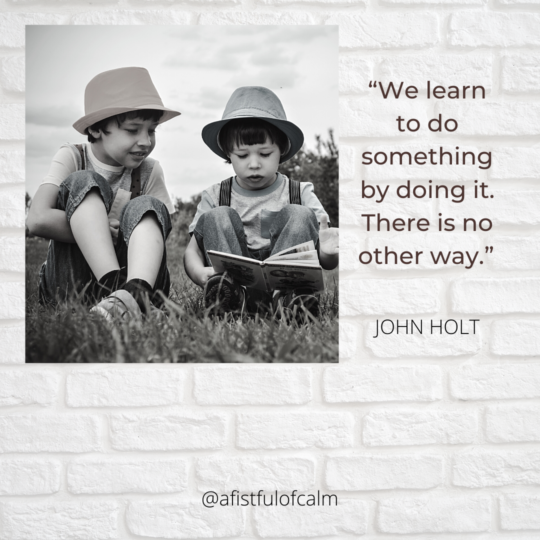The most mainstream view of children with respect to comprehension is that they need to be taught. This is rather absurd especially considering that children have an innate desire to understand the world around them – to try and comprehend pretty much everyone and everything around them – to understand themselves and their relationship to the world. It is why they explore, experiment and observe deeply, driven by their boundless natural curiosity. It is why they ask seemingly endless questions. The endless whys, whats, hows…
“Why does the moon change shape?”
“Do I really need to brush my teeth every single night? Why?”
“Why is fire so hot?”
“Why was that kid saying I can’t play with him?”
“Why won’t she talk to me and read a book instead?”
“What does ……. mean?”
“Why are some people so mean to others?
“Why did Count Dooku need Jabba the Hutt’s Uncle to kidnap his son? Couldn’t he have done it himself?” (Big Star Wars fans over here.)
It is even more evident when we read books to/with our children. Very young children often will turn back to specific pages and ask to re-read the same book/page multiple times. We naively assume that they are memorizing words or colors. We ask them simplistic and rote questions like, “What color is this?” “What letter is that?” without stopping to realize that they are capable of more complex thought processes than memorizing the names of colors and letters.
Facts stick, when the context of the learning is interesting and meaningful to us, when it prompts us to really engage with the ideas. Facts for the sake of facts are honestly boring – that’s why you see children disengaging so often when we repeatedly ask such mundane questions.
Consider an example from a second grade reading comprehension work sheet. I found this online, but this is what they typically look like:

This is a highly simplistic presentation of information to children. It states a bunch of facts and mostly asks them to repeat them via the questions. It does not, in itself, facilitate the type of organic conversations, research and activities that children organically do, which lead to unlocking their incredible thinking and learning potential. Unfortunately, in mass education, we use a model where learning must be measured and demonstrated. Following the curriculum becomes the focus, rather than following the children’s minds.
But what if we allowed them to lead their learning? Trust that they are comprehending, in a way that works best for them? Surely, their own brains have a handle on the path they need to take to building concepts, right? Layers upon delicate layers. Built, one observation at a time, one question at a time, one thought at a time. Absorbing. Comprehending. Osmosis at its best. Inviting us to thoughtfully take part in the process through their questions and thoughts – by following their lead.
Watching a child unfold a concept organically often feels like being witness to the Big Bang. How does something so infinitesimally small as singularity expand into a continually growing universe? I like to think of young minds as the Big Bang on overload. It is the closest thing to magic. Truly.
E.g, a little while ago, my son observed how a thick piece of accordion-folded paper stands on its own on the edges when you spread apart the folds a little, but doesn’t stand on its own when the folds are really stretched out. He asked me why and I put the question back out there, “Hmm, I wonder why?” In this instance, it was clear from the way he asked the question, that he was using me as a sounding board. After a few minutes of experimenting and making observations, he came to the conclusion that it’s because the accordion folds help the paper have a “wider base” as opposed to stretching the paper out which only gives it a very thin base. Hence it is more stable when resting on the accordion folds. These are truly magical moments. Moments when you realize that they are born learners. I got so excited that I snapped a couple of pics as he demonstrated:


What if, instead of disturbing that organic process of comprehending ideas and concepts, we participated in it thoughtfully and whole-heartedly?
I will end this post with one of my favorite anecdotes related to this –
When my son was four and a half, I was reading one of my favorite books on a lazy Saturday – Jonathan Livingstone Seagull. He came and sat right next to me and asked to read the book to him. I thought that he would be bored by the end of two pages, but obliged anyway. Three hours later, we had finished the *whole* book with rapt attention. Every time I paused to ask if we should stop there for the day, he said no, keep reading. It has remained one of my most magical moments thus far. For the next month, my son observed seagulls outside our home and wondered which one might be Jonathan.
He asked endless questions about the story for a while after, until he was satisfied with his level of comprehension at some point. I don’t know what that might be, but I know it was right for him at that time.
